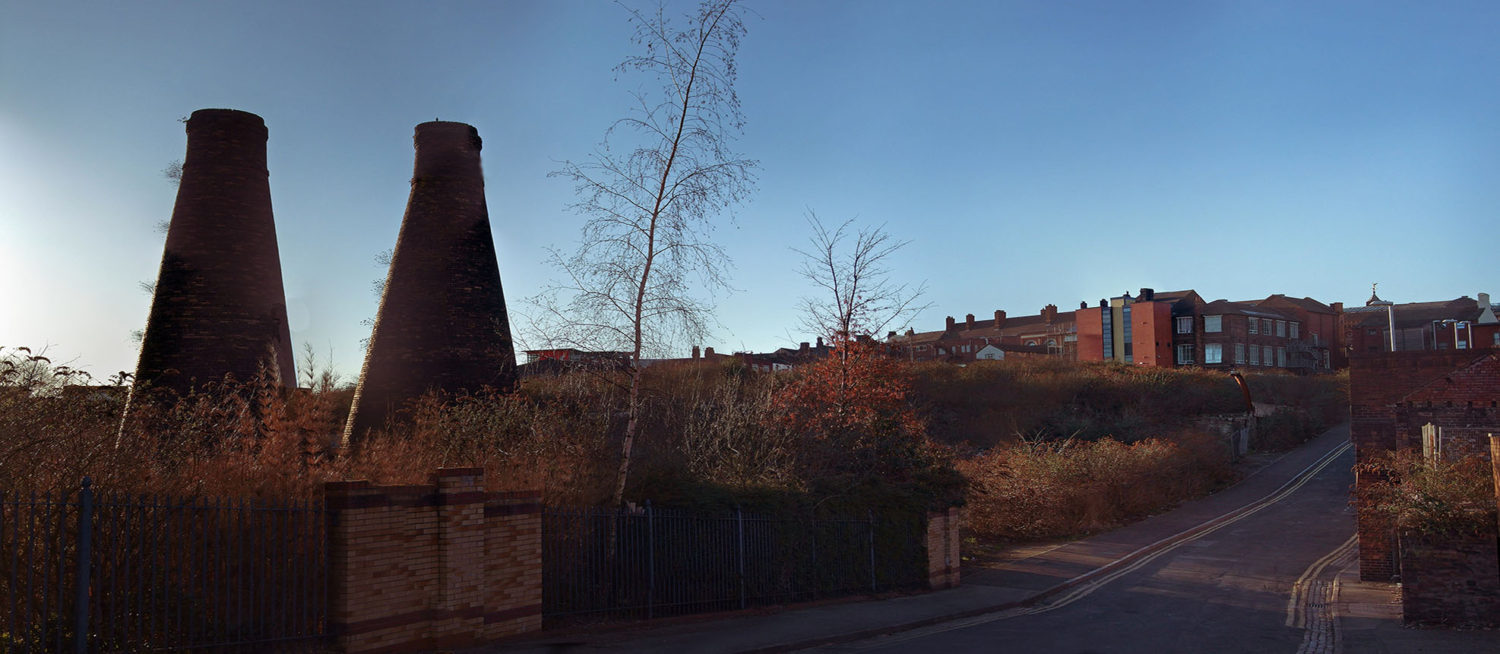For The Many?: Michael
For The Many? takes an in-depth look at Labour's changing electorates based on 6 case studies. Michael is a 63-year-old social care worker from just outside Stoke-on-Trent.
I meet Michael at his immaculate home, just outside Stoke-on-Trent. The walls are festooned with pictures of his dogs, and his two excitable Staffies soon greet me. One, Charlie, settles on my lap. Michael sits opposite me in his small conservatory, a mature man who still looks like a boy. His hair flops around his neck, his faded tattoos cling to his arms, and his bright orange t-shirt reflects off his chin, reminding me of a child with a buttercup. His wife makes sure we are comfortable and brings us tea. His is served in a cup and saucer, mine in a mug.
Michael used to work in the potteries, where he worked his way up to a management position. When the company went into receivership in 1999, he tells me: “I had to tell my daughter-in-law she was redundant and then two hours later I was told that I was redundant.” His wife, Donna, lost her job too. After the pottery closed, Michael took a job in social care. It was all there was, and at the time it offered a steady wage. He has been working at a local care home ever since, and is due to retire in 14 months after nearly 20 years. He enjoys his work, but gets ‘disillusioned’ by the low pay, poor management and huge turnover of his colleagues. He speaks passionately about how social care is too important to be run as a business ‘unless, 100 per cent, you can be confident that it’s run for the benefit of the people we support’.
Michael’s memory of recent years has been scarred by ill health. He has rheumatoid arthritis, COPD, osteoarthritis and has had a hip replacement. His illness has had a serious impact on his mental health, he tells me, because he went from being able to walk 10 miles a day to not being able to get down the front step. He tells me that he would drag himself out of the house with his wife: “I would go with her, sit on a bench like Billy no-mates, looking over an area that used to be opencast mining, now it’s a country park… I’d just be sitting there.”
This sense of loss and nostalgia was a recurrent theme throughout our day together. I’m shown the ashes of the dogs they’ve loved and lost, and I’m regaled with stories of childhood and a sadness that things are no longer the way they were. Michael’s memories of the 2017 election continue this theme. He remembers election day because he saw people he hadn’t seen for years and tells me that the polling station used to be his old school. Voting made him ‘remember all the good times’ and he thinks of the Labour party like he thinks of his school. While you don’t like every teacher, it’s all ‘about teamwork’. Michael also remembers feeling excited about voting because ‘somebody is going to listen to what I do…that cross, somebody is going to listen to it’.
Michael voted Labour in 2017, and to leave the EU in 2016. He did so for similar reasons: to stand up for ‘the English working man’ and because he believes that with ‘teamwork’ the country can prosper. His own experiences come through, telling me that he believes ‘in the English product’ and that “if the Conservatives are in year after year, we wouldn’t have a National Health Service.” He didn’t see Labour as opposed to Brexit before the referendum, telling me that what he gathered was ‘that the Labour party was more for exit that what the Conservative party were’.
The most powerful reason Michael votes Labour is his background and family. He tells me he votes Labour because ‘my parents voted Labour, but if you work for your living, you are Labour’. But it is clear his connection with the Labour party has eroded over his lifetime. He tells me he doesn’t think Labour is ‘trying hard enough’ and no longer cares about working-class voters because they have gathered enough support elsewhere: “I feel as the Labour party is like ‘we’re all right Jack, sod you lot’.” He quite likes Donald Trump and Nigel Farage because they listen to working-class people: “I just want the Labour party to back me up… a little bit more.” He considered voting Ukip recently, but couldn’t bring himself to do it: “I just look up at my dad and I can’t go away from Labour.”
A significant factor behind Michael’s loss of trust is what he describes as Labour’s unwillingness to talk about immigration. He tells me that he thinks immigration has ‘gone too far’ and believes that: “The Labour party are frightened because there are so many people of a different culture that they would be frightened that they wouldn’t vote for Labour.” Michael also worries about changes in his local area. His family all live less than a mile away, and he drives me past their houses on the way back to the station. He tells me he is ‘waiting for Labour to do more for this area, all the jobs are about care, retail, logistics, order-picking and all things like that. We’ve got a good working-class background of Labour people, but it’s getting less recognised, because it’s being forgotten about.’
Michael is also motivated by the performance of political leaders, telling me that he likes ‘characters’. He tells me, sheepishly, that in the 1980s he voted for Margaret Thatcher because she was ‘very clever’ in dealing with the miners’ strike, and was ‘also up for agreeing to people that they could buy their own houses’. He tells me he’d like to see a Labour leader as ‘fiery’ as she was, and he’s concerned that Jeremy Corbyn doesn’t meet that standard: “His policies and everything are right, but he doesn’t come over as a really popular figurehead.”
Michael tells me that his identity as a Labour supporter and the principles he tries to live by go ‘hand in hand’. He tells me he aims to ‘just get on with life and do my best’, to be selfless because ‘people are just too selfish these days’ and to be caring. Michael also tells me he places a high importance on respect, and feeling embedded in a community. When he worked in the pottery industry, he tells me his department would always ‘have a works do’ and he misses the camaraderie. In his current job ‘the staff changeover is really horrendous’ and he feels he can’t build the same bonds with his colleagues. He mentions immigration again, telling me he ‘is not racist’ but feels as though it has ‘broken up’ what he sees as the tradition of community in his area.
Michael is very reflective, telling me that ‘as you get older you start reminding yourself what life is about’. But I can’t help but feel as though most of Michael’s observations are accompanied by a sense of decline. The ‘values have gone down and respect has gone down’, alongside the area he lives in, the economic opportunities he sees for his family, and his health. Part of that is psychological, but it is also political. Michael feels betrayed by the Labour party which has, as far as he is concerned, not had his back. “I don’t know the statistics” he tells me “but I think that the statistics are that there’s a lot of people just still voting Labour, like me, because their parents did, but I think that will be less.”
This interview is taken from For The Many? You can read the report here.
To read the interview with Devon, click here.
To read the interview with George, click here.
To read the interview with Mary, click here.
To read the interview with David, click here.
To read the interview with Yasmin, click here.


